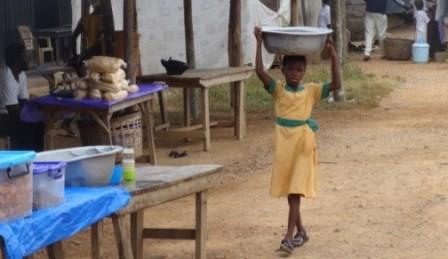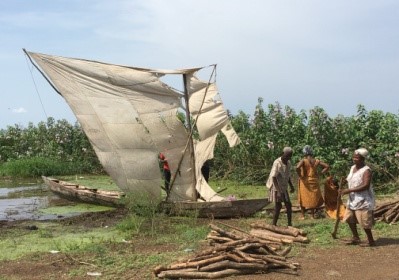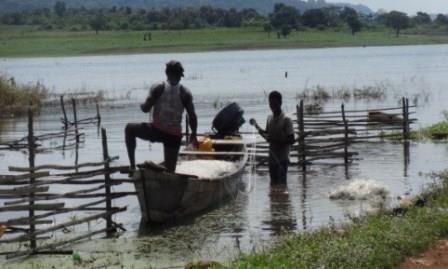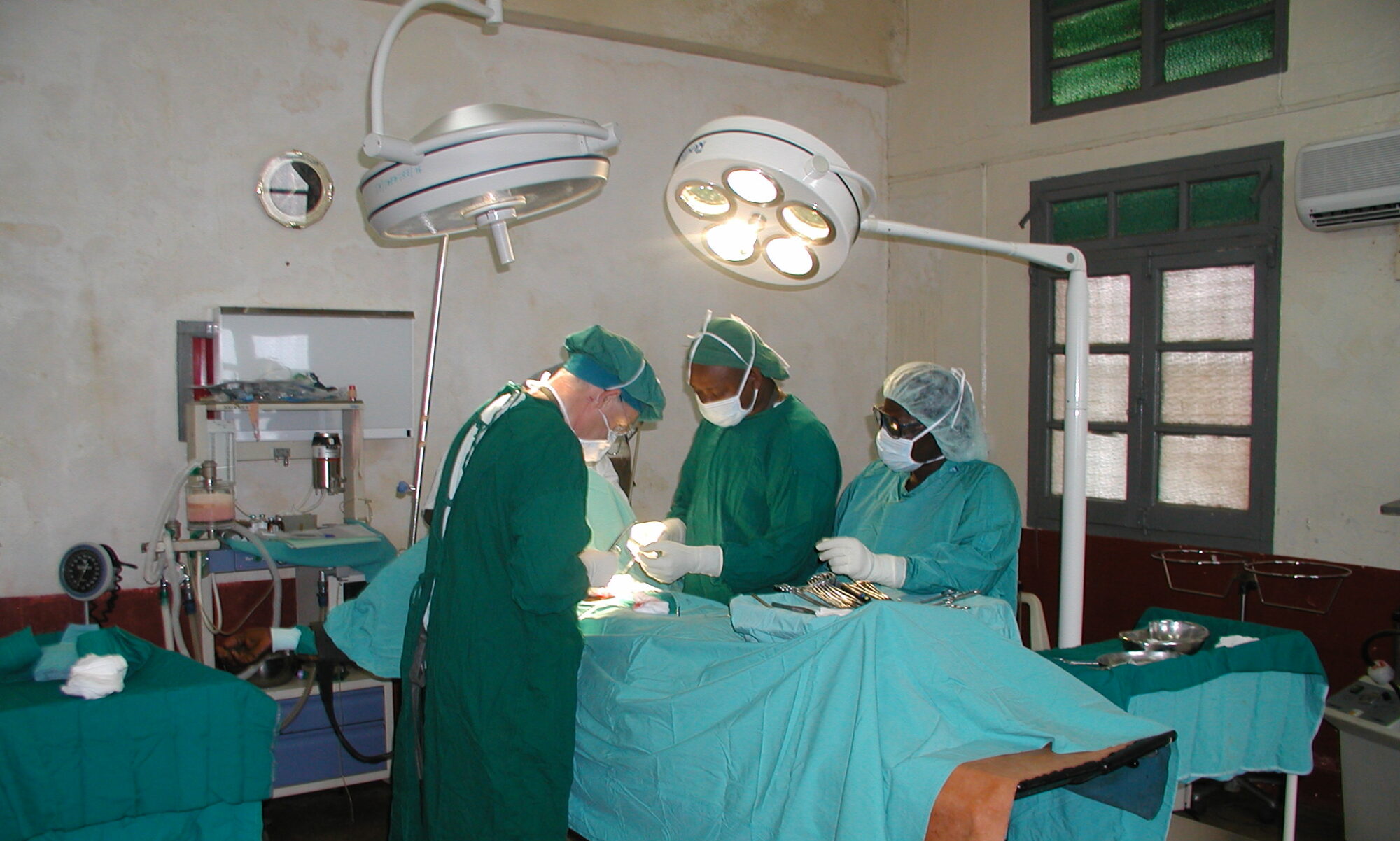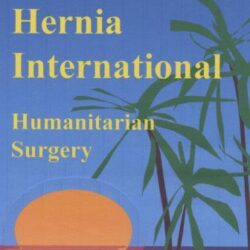Hernia International Mission
Dodi Papase, Ghana, November 2018
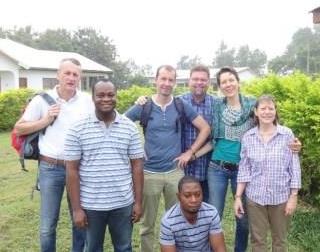
This was the first Hernia International mission to Dodi Papase, and we received a very warm welcome from Dziwornu Kunutsor, Specialist General Surgeon, and the staff at the St Mary Theresa Hospital. We were provided with comfortable accommodation on site in one of the staff bungalows, (a short 3 minute walk to the theatres each day) and had the pleasure of Joyce cooking delicious Ghanaian food for all our meals.
The team had worked together on several previous missions, and there was a good feeling of getting back together and catching up on individual news of the last 12 months. Our multinational team comprised Katharina from Switzerland (Anaesthetist and team leader), Michael from Switzerland (Medical Engineer), Margaret from the UK (Registered Nurse) and Surgeons Christoph from Switzerland and Stefan from Germany.
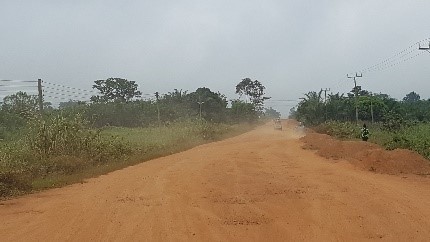
We met at Accra airport and stayed overnight in a nearby hotel, and the following morning travelled for 6 hours to Dodi Papase. After about 1 hour of driving the condition of the roads became variable – intermittent sections of about 5 – 10 kms of un-sealed roads and vehicles in both directions weaving chaotically over a terrain of large potholes – some still full of water from recent rains. We were mindful of how much more treacherous the journey would have been in the wet season when we encountered an abandoned overturned lorry carrying huge logs of wood. The concentration and skill of our driver Joshua was nothing more than awesome! At least one of us was clinging to the edge of the seat at times!!
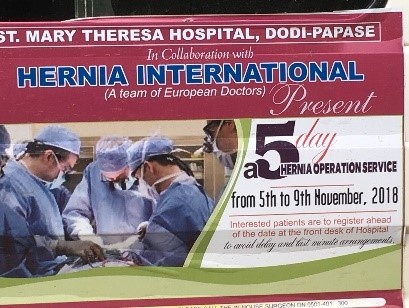
It was impressive how well prepared and organised the St. Mary Theresa Hospital was for the mission. The local IT technician had designed and produced a dynamic poster advertising the mission. This had been displayed on the hospital ambulance, the entrance gate to the hospital and in community clinics. As a consequence, recruitment had been very successful with some patients travelling in even from neighbouring Togo. The theatres had had a major refurbish in 2010 from the sponsorship of the German Govt, Rotary International Foundation, and German Rotary volunteer Doctors and we certainly felt the benefit of working in the 2 theatres that were well equipped with supplies and remarkable clean- in fact, more than what we had experienced on other missions.
Andrew Kingsnorth had provided mosquito mesh and for the first time specifically manufactured packets for medical sterilisation. The individual pieces of mesh were assembled in the packets in advance of the mission and sterilised onsite at the hospital according to the planned surgery lists each day. This process of sterilising the mesh on site (in steam sterilisers) worked well, along with being able to leave a generous supply of assembled mesh in packets for the staff to sterilise as and when required for future hernia surgery.
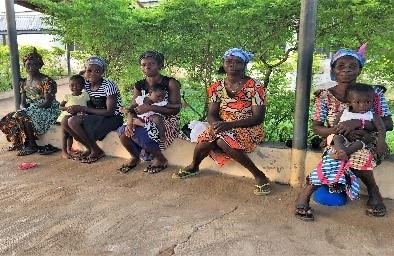
Depending on other hospital commitments, Dziwornu and 2 GP’s joined the HI team each day for the surgical lists which ran from 8am until 7-8pm. The Ghanaian doctors are working after university and before specialist training for three years as GPs. GP are seeing, treating and admitting patients in the hospital and also performing some surgical procedures as Caesareans, appendicitis or hernia repair. So our teaching was well placed. There was much sharing of ideas, skills and knowledge, and great collaborative team work, and it was fascinating to compare and contrast the prevalence of surgical emergencies between African and Western populations – particularly relating to abdominal surgery. The clinical stories were riveting.
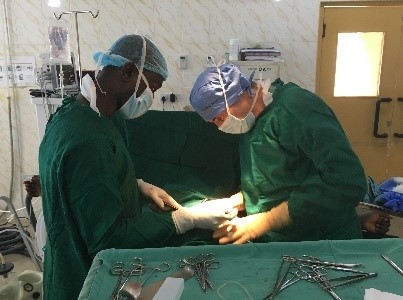
A total of 60 hernia operations were performed which included 8 bilateral hernias. The cohort included 9 children all of who had general anaesthesia. Patients with complex hernias had spinal anaesthesia – Katharina taught the local anaesthetic nurse (Festus, a very motivated young anaesthetic nurse) spinal techniques along with the ‘tricks of the trade’ of many other aspects of anaesthesia.
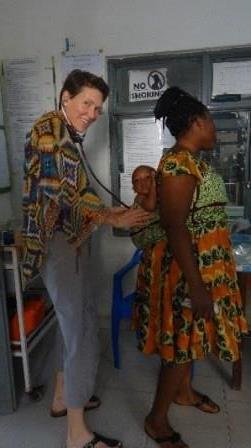
At the beginning of the week there were some problems with the generator. A period of 24 hours elapsed without electricity before this was resolved by a great collaborative effort from Michael, our team medical engineer, and the hospital engineers. Meanwhile surgery was continued with the use of head lamps! Michael’s medical engineering skills were utilised from dawn ’til dusk; endless equipment was repaired and serviced…. operating theatre light, diathermy machine, anaesthetic machine, suction unit, theatre tables, Mayo operating stands, sharpening of dissecting scissors and repairing a washing machine that had not worked for more than one year… not to mention helping with the recovery of the generator! He was a huge asset to the day to day “fine tuning” that enabled us to work with greater efficiency. From our experience it would seem highly beneficial to encourage/actively seek out medical engineers to be part of the missions.
Alas, the week went by all took quickly, and our connections with people made it hard to say goodbye. However, we had a little time to step back and reflect on the experiences of our week with our journey back to Accra stopping off at a small town on the Volta Lake, enjoying the sights of boat building, fishing, markets and the wonderful colours of daily life.
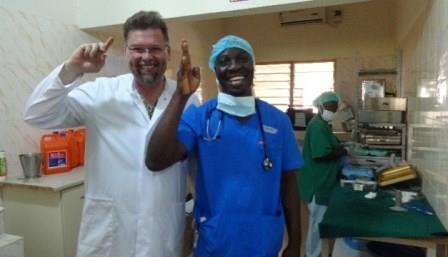
The feedback was positive, and our considered opinion was that future missions to Dodi Papase would be worthwhile. We are hugely grateful for the welcome by Dziwornu and staff and all their hard preparatory work, along with the learning that we all take away, and the insight into Ghanaian culture, food and customs that we experienced.
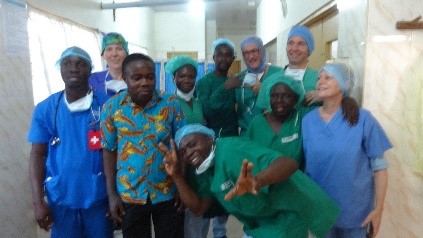
For the whole team: Margaret (RN)
